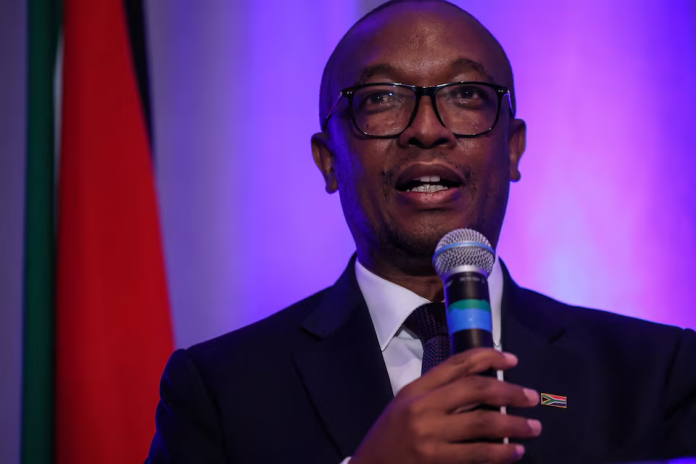South Africa is racing against time to finalise an “enhanced” trade proposal aimed at preventing punitive 30% US tariffs set to take effect on 1 August, Trade Minister Parks Tau disclosed on Thursday.
Speaking to national radio station 702, Tau confirmed that US officials had urged Pretoria to submit a revised offer after Washington failed to respond to proposals initially tabled in May and revised in June.
“We’re having to navigate a last-minute proposal that’s enhanced from the proposal that we had initially given. And to tell the truth, it’s wait and see,” Tau said.
The tariff threat triggered profound economic unease across South Africa, where central bank governor estimates suggest 100,000 jobs face immediate jeopardy if the duties came into effect. The agriculture and automotive sectors, pillars of the nation’s export economy, would bear the brunt of the impact given their reliance on US markets.
As South Africa’s second-largest bilateral trading partner after China, the United States imports significant volumes of South African automobiles, manufactured goods, citrus fruits, and wines.
Tau noted that intensive discussions occurred on Wednesday night between South African officials and both the US embassy in Pretoria and the Office of the US Trade Representative, though no assurances emerged from these exchanges.
“They [said] they would encourage us to resubmit our proposal, possibly an enhanced proposal, to the United States government,” the trade minister reported.
The eleventh-hour diplomatic scramble unfolds against a backdrop of strained bilateral relations. Earlier this week, a senior South African diplomat revealed that US demands regarding domestic affirmative-action policies have significantly complicated negotiations.
Washington expressed objections to elements of South Africa’s Black Economic Empowerment (BEE) framework, legislation designed to redress centuries of racial inequality through employment equity and ownership requirements.
Further tensions stem from South Africa’s genocide case against Israel at the International Court of Justice, which both Israel and the United States vehemently oppose.
